Ken O'Donnell's Blog
July 2, 2021
Emotional immunity in troubled times

In these times of Covid, we have all become more aware of the immune system of the body. We know that it is a complex biological and psychological network that can help us fight infection and pathogens.
We also know that inflammation and infectious diseases are not only due to biological functions.
There are numerous studies that show the importance of psychological balance and mental health in guaranteeing a better physical immune response. This includes the state of our emotions.
The other day I was talking to a group of meditation teachers. One of them asked me if I had already been vaccinated. I said I had and that I knew that there is no 100% guarantee about anything, especially with so much fake news floating around. I thought that if I really concentrated on the physical aspects of strengthening the immune system such as getting good rest, eating a lot of green vegetables, drinking plenty of water, exercising regularly, I would only be partially protected.
After more than 45 years of meditation practice, I have a very clear idea of how the regular practice of meditation helps me create a better mental and emotional balance. This would give me another part of the protection against the virus. Deep meditation practice can even change what we call our karmic account, adding another dimension of protection.
Being vaccinated gave another part of the protection.
So I told the teachers that if they decided not to get vaccinated, if they didn't lead a healthy life and didn't have a particularly good meditational state, they would have no protection at all. Of course, the choice is up to each one.
There are a couple of things that I can do to bolster my emotional immunity, or in other words, strengthen my inner resilience.
The first tool is to better understand the spiritual dimension of our existence. I am a spiritual being going through this human experience. I play my role in this play of life. I cannot control the roles of anyone else. I know that my inner nature is one of peace and that it is very easy to forget this with everything that is going on.
The second tool to develop inner strength is to practice meditating on my spiritual nature to bring out the qualities that I need to face whatever comes up.
There is so much going on in the world around that it is so easy to get caught up in situations and relationships. This can end up making me extremely vulnerable emotionally.
With unclear thinking and uncontrolled feelings, emotions can overwhelm me. If that happens, it is no use trying to numb myself against whatever I am feeling through temporary escapes. I still would get stuck in the present without seeing the bigger picture. The best thing to do is to look at provocative situations as a detached observer. This means amplifying my vision to include the influence of the past as well as the possibilities of the future. This helps me to mindfully accept the present.
I imagine the whole situation happening on the stage of a theatre. I am sitting in the back row looking at my performance. It then is easier to accept whatever is going to make appropriate changes. With this practice, I can emerge stronger and more resilient.
If I allow it, anyone or anything can take me away from my sense of peace and well-being. That is the key idea. I allow this to happen no matter what others are doing. It is not they can jump into my head and create my thoughts and feelings. I am always the author of them. I can always choose what to think and feel, however others are behaving.
If I can manage my emotions in a positive way I will be able to relieve stress, communicate effectively, empathise with others and avoid possible conflict. It will help me to build stronger relationships at home and at work.
It’s all about being able to manage the self so that impulsive feelings and behaviour come gradually under control.
It’s about being aware of the impact of my emotional state on others and the world, how they affect my thoughts and behaviour.
Through self-knowledge and the practice of meditation, I will be able to create more strength and resilience in my life.
July 1, 2021
Escaping the labyrinth

Myths and legends have always fascinated me. They are the stories of our own self-development and our relationship with God.
When I was very young had the opportunity to study many of the stories. One that held my attention was a story of Daedalus and his son Icarus.
Daedalus, a great inventor, created such a labyrinth for the king of Crete that no one could get out of.
In a rage due to misunderstanding, the king imprisoned Daedalus and Icarus in the labyrinth.
To escape, Daedalus fabricated wings for him and his son, using beeswax and feathers of all sizes that they found here and there. Icarus was told not to fly too near the sun as the wax would melt. In his youthful excitement and the joy of the flight itself, Icarus flew closer and closer to the sun, the wax melted. The wings disintegrated. He fell into the sea and drowned.
There are many meanings in this short story.
The labyrinths of our lives are of our own making. We go round and round and down the same paths without finding a way out. Through our ingenuity, we may get some reprieve.
We escape from our own complications on the wings of our own fabrication, only to come crashing down again.
Instead of the blind enthusiasm of Icarus, let me have the common sense of Daedalus.
He survived and later built a temple to Apollo, the most beautiful of the gods, where he offered up his wings and retired from such flying forever.
Instead of going through all of this, if we are the ones who created our labyrinths, we also have the secret of getting out of them.
June 30, 2021
Things are only strong when they are used in their context
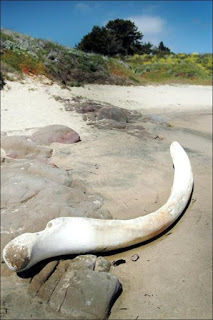
The squalling winds had settled down into a stiff breeze as the boy alternately sauntered and skipped across the beach. Suddenly, a strangely shaped object whitened by the action of the elements attracted his attention. As thick as a man’s leg at one end, curved and tapering out almost to a point at the other, it came almost to his shoulder.
Laying it out in front of him with the care of newly born wonder, he picked up a nearby rock and started to pound it to see what it was made from. After fifteen minutes of profuse sweating and little headway its hardness defeated his efforts.
With a gleam of joy in his eyes he came to a definite decision. Picking it up and dragging it through the sand, he hauled it slowly up the rise to his home a few hundred metres away.
There, his father and elder brother were half-way through the building of a new brick fence to replace the wooden one that had been flattened by the worst storm in recent memory. Seeing his young son puffing and dragging a huge curved thing across the grass he cried,
“What do you have there?”
“I don’t know Dad, I found it on the beach. It’s the hardest thing I’ve ever seen.”
Taking it in his hands and examining it from different angles his father stated simply,
“It’s part of the backbone of a whale near its tail. It must have been washed up on the beach during the storm. Why did you bring it here?
With innocent pride the boy announced his excellent idea,
“I thought you could use it in the fence. It’s so strong.”
“No doubt about its strength, son. Many’s the fishing boat that has felt the power behind a whale’s swishing tail. But it would be out of place in the fence. It just wouldn’t fit in with the pattern of the bricks and mortar. Instead of helping it would weaken the structure.”
Uncomprehending and with a forlorn cast of his head he turned to lug it back to the beach.
“Then you can’t use it?”
“No, son. In spite of its strength, the most it could have is curiosity value.”
************
Things really only have power and strength when used in their right context. If I have all the patience in the world, yet the situation requires determined action, my internal structure is weakened and therefore any protection it could have afforded me is lessened.
If I have unabated enthusiasm to act yet the circumstances necessitate perseverance, I’ll not be able to withstand the pressures they bring.
From my book: "Tales for Better Living" - Tale #1
Practising compassion at this time
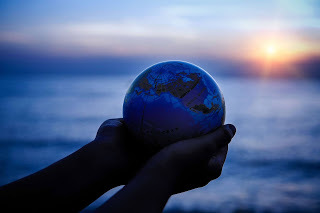
In these days of extreme uncertainty and anxiety we are being called upon to rethink the way we engage with our world. With the coronavirus affecting families and communities throughout the world, we need to strengthen our inner selves to be able to not only help ourselves but to help others.
With possibly extra time we have on our hands, we have never been so emotionally available to take into consideration the genuine feelings of others.
A lot of the things that we used to take for granted are being questioned as it begins to take its toll on the different systems that make up society. It's a great moment to practice compassion.
Compassion comes from Latin com (with) and pati (suffer). But it means much more than just picking up on the suffering around us. It goes beyond empathy as it brings a deep feeling of wanting to reach out and help. It is the opposite of egocentrism and self-pity.
If we look around us at the people with whom we have isolated together, some are definitely in a state of fear – either for their health or for their financial situation.
We see scenes on the television of grief stricken families who cannot even attend the funeral of a deceased loved one. We see the frontline health workers courageously facing the danger of being infected. We see people affected by fake news with fear of taking the vaccine.
We see people filing for unemployment benefits if they can and lining up for food handouts. We see the poor people who live in their shantytowns with no possible way to practice social distancing. It truly is a picture of universal anguish.
At this time, I can become a rock of support for others, not only by remaining free from the hysteria but by creating an inner state of compassion, in which I can mentally embrace others who are stuck, sick or confused.
To practice this, sit comfortably. Here are some thoughts to practice compassion
I remain stable and calm internally and reach out with positive feelings that can help to calm them also.
I think about the plight of health workers at this time, and the families of those who are really ill.
I think about the unemployed and the hungry. I open my heart to embrace that suffering as well.
I think about how good it feels when I am truly compassionate.
I will understand the suffering of others and have the desire to alleviate if I could. What is my new language for the self and others?
I look at myself and my recent behaviour. I go beyond any self-criticism and practice self compassion.
I become a detached observer of myself and of the present moment of humanity and its collective systemic suffering.
I send so much peace that it soothes the heart of humanity.
What can I do to be truly healthy, happy and wise? I just have to be more compassionate.
As we practice this more are more we find our own situations becoming easier.
From my Youtube channel, Live and Meditate,
Image: Sompong Rattanakunchon, Credit: Getty Images
Understand how you work and begin to call the shots
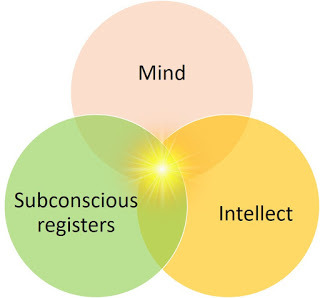
Very rarely do we meet someone who has everything they need. Especially in these times of lockdown and scarcity of many items. But perhaps the greatest thing we lack is the understanding of the basic rules of life behind everything that happens. With this we can face any difficulties that the chaotic world may produce.
There are systems that work together in an integrated way to produce all aspects of our existence. The world around us in all its shapes and forms is the consequence of the way the elements that make it up, both living beings and the inanimate elements of matter, relate to each other. Our individual connection with the world around us happens through the ego linked to our physical identity, roles and history. The ego can be the best or the worst agent for the inner self in its relationship with the world.
There are 3 elements that integrate to produce our perceptions, experiences and activities. As shown in the diagram above.
If we are really honest we can say that their activity is more or less out of control. The mind wants one thing. The intellect pulls in another direction. The action of the subconscious is apparently random, producing our experiences and perceptions. Most people believe that it is not even possible to control this interaction.
To do this, we have to strengthen the inner self.
In order to explain this, I want to use the image of a beach. I especially remember a beach that was about a hundred meters from my parents' house, 500 km south of Sydney, Australia. As it was quite deserted, I used to go and sit there and become fascinated by the incessant breaking waves.
The mind is like the beach. It is the passive receiver of all sorts of images, sensations and ideas that are recorded in the subconscious sea of experiences.
The waves break on the beach in the form of thoughts and feelings. The waves can be gentle o can come thundering down. The big question is: can we control the waves?
So imagine someone sitting on the beach just watching the waves. It is through the intellect that we can observe the thoughts and feelings that break on the beach of the mind. But this is where the analogy ends. We can observe whatever appears. But we can also control the flow. We can determine the waves we would like to have or feel, instead of just being passive victims of whatever comes.
As we practice this observation and control, with the help of meditation, we can better deal with any circumstances that may arise. We stop being tossed around by uncontrollable waves in an apparently random world. We start to call the shots cannot have them called by external factors.
Understanding this process and working on it is probably the best thing we can do for ourselves in these crazy times.
From my Youtube channel, "Live and Meditate", video #134
December 25, 2020
Emotion, Reason and Spirituality
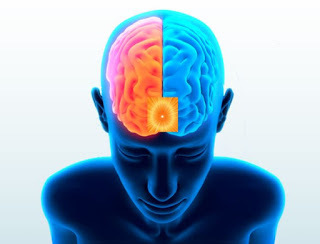
In my book Endoquality, I asked how many people it takes to have a conflict. The answer is one. Internally, the mind and intellect often fight it out. Representing the mind is emotion. Representing the intellect is reason.
Emotions often dominated the intellect and vice versa.
An example. It’s a cold winter morning. I have gotten to bed late after a night out. The alarm clock rings stridently. The dialogue between reason and emotion begins:
Emotion: It’s too cold today and so warm in bed. I want the stay snoozing another 10 minutes.
Reason: You know it's time to get up. The last time you wanted another 10 minutes, you slept another hour arrived late at work. You know they are laying off people who make mistakes like this.
Emotion: Please, it´s only 5 degrees out and it’s raining. I only got to be at two.
Reason: No excuse. It’s a working day. Get up.
Emotion: Please just another 5 minutes. What about 2….?
This is how the internal dialogue often goes on. Wanting something (emotion) and knowing (reason) battle it out on the field of the mind. They use the subconscious recordings of similar situations to bolster their respective arguments.
Sometimes I want things I know are not good for me or I know things I don't want to know about. They are incompatible and so, a conflict takes birth, It only ends when spiritual authority reasserts itself and takes charge from the confused, weakened and overwhelmed ego.
What I proposed in this book was a spiritual quotient or a measure of spiritual intelligence. this is precisely what can give guidance and strength to the intellect and fulfilment and tranquility to the mind.
Rational intelligence is what helps me to manage things, facts and numbers etc. Emotional intelligence is what helps me to deal with other human beings. Spititual intelligence is the dose of spiritual insight and power that saves me from the excesses of the other two.
Spiritual intelligence synchronizes the mind and intellect to produce a sense of harmony. What questions and criteria can I apply regarding the effectiveness of my life? Some examples:
Am I spending more time and energy, money, and thoughts than I need, to get the results that I want?
Can I keep bilateral respect in my relationships?
Do I play a fair game when I'm working with others?
Do I keep my dignity while respecting the dignity of others.
Do I feel peaceful. despite having a lot to do?
Do I remain stable in the chaotic situations?
Am I more aware of people's virtues than their defects?
The higher the mark in most of the answers, the more developed is my sense of spirituality.
Text from the Live and Meditate Channel (https://www.youtube.com/liveandmeditate and https://www.facebook.com/liveandmeditate/) Videos #009 and #010
December 23, 2020
Christmas Message 2020
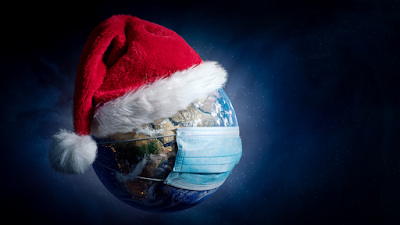
COVID-19 has not cancelled Christmas 2020. Just the way we celebrate it.
This year Christmas is a time to digest and absorb the spiritual lessons that 2020 has brought us. Though it has been a strange and even terrible year for some, at this time we have to check our stock of good wishes for other human beings, the environment and ourselves.
When suffering is great many people seek solace in connecting with the One God no matter what the tradition. At this time Christians especially remember the life and example of Christ.The first two words of the Lord's prayer, Our Father, convey a profound meaning to me. Christ did not say 'I, Father,' or 'My Father'.
'Our Father' puts Christ together with us. He may be one of the highest among us, but saying Our Father, he showed that he was one of our brothers.
The way he spoke about God suggests a natural relationship with the Father to which we all have a right.
My image of Christ is not one who came to earth pointing to himself but pointing our attention to God, the Father and the spiritual heritage to which we are entitled.
His birth shows us how we can reinvent ourselves as well in spite of the challenges.
In other words, have a spiritual rebirth. This means the birth of a new consciousness.
One that has nothing to do with the resurrection of bodies, but with the resurrection of our deep spiritual nature, which is similar to God - "in His own image."
Christ gave us an example of right behaviour - how to be loving, tolerant, generous, humble and pure in our intentions and interactions.
Instead of worshipping him, the greatest act of worship is to become like him, to sacrifice everything that is not divine, so that we may once again take up our divine nature and live in the light of God.
Text from the Live and Meditate Channel (https://www.youtube.com/liveandmeditate and https://www.facebook.com/liveandmeditate/) Video #138
Image: Credit: Thomas Hertwig/Dreamstime
December 6, 2020
Theories, beliefs and excuses
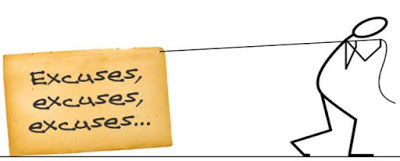
Practically all of our popular beliefs are still only theories:
that we are the descendants of monkeys; that our ancestors were cave dwellers; that the universe started with a big bang or by some divine act; that such and such a founder of a religion is the only legitimate representative of the truth; that we are all equal; that violence is natural to the human being. The list of our beliefs at a personal level goes on and on.The beliefs about what can make us happy are mostly a bunch of premises, based more on hope than on a real perception of the world and our relationships.
Theories are not absolute truths. A good exercise would be to go through our convenient yet basically unfounded theories of beliefs and rewrite them:
my husband, wife is ...my religion, race, culture is better than... I can't change... I'm too lazy... No beliefs or theories are fixed forever. If we could really go to a deeper level of perception we would probably change them. If we have the power also, we would be able to see how excuses are the main weapons of our shaky premises and how excuses actually block the truth.
Recently I came across a phrase from an anonymous source.
"Excuses are tools of incompetence.
They build bridges to nowhere and monuments of nothingness"
I would go a step further and suggest they are bigger and smaller lies to escape responsibility, embarrassment or the realization of the extent of some bad habit.
What we need to do to is to learn to explain honestly any failures we may have.
I ate that third piece of pizza because I wanted to please the person who made it. I really did it because of unmitigated greed. I didn't get up this morning for my meditation practice because I had a hard day yesterday. I really didn't get up because of pure laziness. The phrase, I know I had to do X but I did Y because of..., is only real if the Y was so important or unavoidable that I couldn't do anything else. It should not be a lame attempt to avoid shame or the revelation of my incompetence.
If I become a specialist in making excuses, two things will happen:I will start to believe in them. Real self-progress will stop. If I continue always making excuses then I will seldom accomplish anything worthwhile.
If I learn to clarify honestly what really happens l will learn from it, retain my self-respect and really contribute to a better self and a better world.
Text from the Live and Meditate Channel (https://www.youtube.com/liveandmeditate and https://www.facebook.com/liveandmeditate/) Videos #16 and #17
December 5, 2020
What to do about chaos
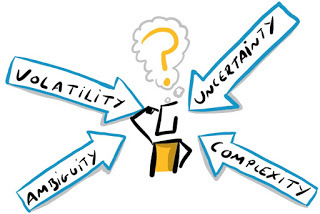
In 1987, as the Cold War was ending, the US military started to use the term VUCA to describe the way the world was heading. VUCA is an acronym for Volatile, Uncertain, Complex and Ambiguous.
Later this term was taken up in education and especially in the corporate world related to management and leadership. Since then all of these conditions have become worse.
Volatile because of the nervous nature of change as it happens and the reaction to it.
Uncertain because anything can happen to anyone, at any time, anywhere. A general lack of predictability. Constant surprises.
Complex because of the interconnectivity and interdependence of multiple components in our systems.
Ambiguous because of the lack of clarity and the excessive misunderstanding related to things that happen.
There is no easy answer to being able to deal with these factors at any level - governments, organisations, civil society or individuals. Since this channel is dedicated to helping individuals live better in and with the world around I would like to add a couple of things.
Firstly, whatever we have learned in the past about ourselves and the world, may not be enough to deal with the chaotic nature of situations and people around us as they worsen.
Secondly, though we can't control the chaos, we can control ourselves better. For this, we need perhaps another acronym, USIF. Understanding, Stability, Inner Power and Freedom.
We have to understand the basics of life at a spiritual level. We have to work on my mental and emotional stability no matter what happens. We have to develop inner power through meditation practice. We have to become free from attachment to people and things and even own past so that we can act in the best way possible for ourselves, our families and the world.
Text from the Live and Meditate Channel (https://www.youtube.com/liveandmeditate and https://www.facebook.com/liveandmeditate/) Videos #18
December 4, 2020
Spiritual Maturity
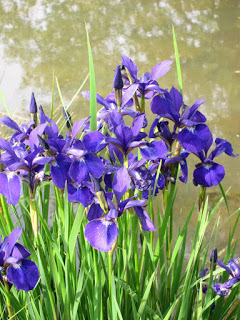
You don't find the grass making huge efforts to push its shoots through the topsoil to reach the same light. You can see how the wind, clouds, rain and sun combine to produce refreshing scenes every day. It's forever recycling itself. Just look at these beautiful irises in front of the building where I am (picture above). The potential for their splendid manifestation is in the bulb. Every year, around this time they bloom.
Even looking out the same window, where my office is, everything is different every time I look out - clouds and sunlight are always changing.
These are the things that remind me of spiritual maturity. For me, it is a sense of sufficiency, that everything is moving along nicely, not in the sense of standing back and just going with the flow. It's really because there is a relationship between internal order and how this influences the world we live in. There is an understanding that worry is low-quality thinking, and that it's much more profitable to have inner control and peace and watch the wonders that happen around, from that state.I've been thinking more about spiritual maturity in terms of some indicators. How humble do I feel? How protected do I feel? Does my spiritual state reflect the more than 40 years I have dedicated to developing it?I can honestly say I don't have limited pride about what I have learned and know. It's that I'm really glad about how spiritual knowledge has helped me and others throughout my life. I do not feel that I'm better or worse than anyone else, just different. There is an intuitive understanding that I don't need to compare myself with others. I just have to recognize and celebrate the many things we have in common. And any intellect or personality differences only provide variety for the play of life.I understand that truth will always be self-evident. I do not need to prove anything. Only that which is really true has a future. Everything that is intrinsically wrong does not last.
I recently found two words in Sanskrit that reflect an important part of spiritual maturity.
Gaunibhakti is ego-based devotion, in which the person feels that he is "saved" and looks with disdain at any other kind of faith. This means to love one ideal, but feel aversion to other ideals.
Parabhakti (the highest level of devotion) means total loving devotion to the truth, so much so that there is no room for hatred of any kind.
This to me is the essence of spiritual maturity.
Text from the Live and Meditate Channel (https://www.youtube.com/liveandmeditate and https://www.facebook.com/liveandmeditate/) Videos #14 and #15
Ken O'Donnell's Blog
- Ken O'Donnell's profile
- 3 followers



